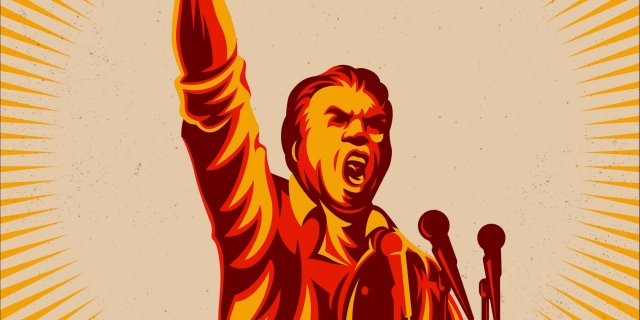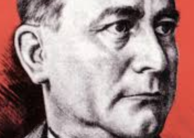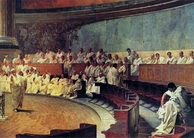|
Political Theory (tagged articles)
The keyword Political Theory is tagged in the following 29 articles.
2022, Vol. 14 No. 03
After World War II, America’s baby boom and rapid migration into cities sparked a damaging housing crisis. This marked a turning point in architectural style: the rise of modernism. Modernism prioritizes function above all else and believes... Read Article »
2022, Vol. 14 No. 02
In popular international relations (IR) theory, knowledge production is often dismissed as an objective process between the researcher and the empirical world. This article rejects this notion and contends that the process of knowledge production... Read Article »
2021, Vol. 13 No. 10
This paper assesses the political preferences and ideologies of the Trump administration and how they influenced framing issues in a way that has underestimated the threats of right-wing militia groups in the United States. President Trump and officials... Read Article »
2021, Vol. 13 No. 09
In his book, The Prince, written in 1513, Niccolò Machiavelli argued for the autonomy of politics from religion and ethics, essentially creating the discipline of political science. His ideas enjoyed great popularity in the following centuries... Read Article »
2021, Vol. 13 No. 04
Following the enlightenment era, a new incarnation of politics created a uniquely democratic, liberal, egalitarian structure of government in Western democracies. In recent years, there has been an erosion of these qualities in favor of alternate... Read Article »
2021, Vol. 13 No. 01
Through an examination of recent populist political formulations in Canada, this paper argues that prevailing understandings of right-wing populism are incomplete insofar as they occlude expressions of right-wing populism through regional and economic... Read Article »
2020, Vol. 12 No. 11
“Just-war theory,” as it is called, aims to guide action during warfare, so that states and individuals can act ethically. Because warfare is often analogized to epidemics, this paper will argue that just-war theory can recommend how... Read Article »
2020, Vol. 12 No. 07
For the past several years, the study of German jurist Carl Schmitt has exploded in China. Floria Sapio remarks that Schmitt has enjoyed “enormous currency among mainland Chinese scholars since the 2000s.”[1] Even though Schmitt has... Read Article »
2020, Vol. 12 No. 04
In his compelling account of juvenile justice, “Age of Culpability,” Gideon Yaffe provides a philosophically rigorous justification for the claim that “children should be given a break when they do wrong; they ought to be treated... Read Article »
2019, Vol. 11 No. 02
American politics today operates in an arena where truth and objective reality are bent to the designs of particular interests, powerful people and commercial profiteers. All facts are questioned; the truth has purposes. Populist and nationalist... Read Article »
2017, Vol. 9 No. 10
Political philosophers and theorists alike continue to debate if more enlightened populations would be of value or not. This piece will contribute to that dispute by claiming that an enlightened populace is integral to the progress of free-societies... Read Article »
2017, Vol. 9 No. 07
There has been extensive debate over the past few decades regarding the criteria by which we should measure distributive justice. In conceiving a just state of affairs it is imperative that we determine the most appropriate measure of the distributions... Read Article »
2017, Vol. 9 No. 04
This piece examines the ideologies and tactics used by fascist governments to validate and enforce their authority through Michael Mann’s work Fascists. By explicating Kant’s view of autonomy and progress, found in “An Answer to... Read Article »
2017, Vol. 9 No. 02
Given pervasive representations of its geostrategic and global economic significance, the Middle East constitutes an important area of political and academic study far beyond its geographical boundaries. A key debate underlying such research is... Read Article »
2016, Vol. 8 No. 11
In Federalist No. 34 Alexander Hamilton, arguing for the ratification of the United States Constitution, claimed that the Roman Republic had “attained to the utmost height of human greatness.”[1] The Roman Republic, at least an idealized... Read Article »
2016, Vol. 8 No. 10
In the immense field of scholarly work regarding defining nationhood, a raging debate exists between the conservative view of the nation and the constructivist view. A clear and definitive change in the conception of the ‘realness’ of... Read Article »
2016, Vol. 8 No. 09
This paper is an attempt to navigate through existing theories of universalisation of human rights and existing justifications thereof. It is premised on several cultural and political notions that it takes as starting points, not as truisms, but... Read Article »
2016, Vol. 8 No. 08
Often called the “prince of the humanists” Erasmus of Rotterdam (1466-1536) was one of the most influential European philosophers and theologians of the early modern period. However, today he is often overshadowed by his more radical... Read Article »
2016, Vol. 8 No. 07
As Europe’s frontier with the Muslim East, Greece has been cast as backward, and not worthy of full sovereignty since the earliest years of its independence from the Ottoman empire. Greece's contradictory position as guardian of the origins... Read Article »
2016, Vol. 8 No. 05
As a founder of sociology, Max Weber influenced the social sciences immensely. In his “Politics as a Vocation,” Weber claims that one of the definitions of the state is its ability to employ legitimate violence as a means of control... Read Article »
2016, Vol. 8 No. 01
Within Lao Tzu’s Tao-Teh-Ching and Machiavelli’s The Prince, there are similar notions concerning how a ruler should maintain order and how he/she can be an effective leader. According to the former, it is best if people are blind to... Read Article »
2016, Vol. 8 No. 01
Conceiving neoliberalism as a form of constructivism, an ideological project rather than a doctrine prefigured by ‘human nature’, illuminates a promising path towards countering its impoverishing effect on both the citizen subject and... Read Article »
2015, Vol. 7 No. 04
The assertion that unconstrained power brings with it inevitable corruption has occupied theorists since the first considerations of authority. That the nature of man in unconstrained assemblage will lead to a “tyrannical abuse of power&rdquo... Read Article »
2012, Vol. 2 No. 1
The research completed aimed to show that the idea of fair trade, using the example of goals for the chocolate industry of the Ivory Coast, can be described as an example of the economic ideal which Karl Marx imagined. By comparing specific topics... Read Article »
2012, Vol. 4 No. 03
Due to their different subject matter, the way in which social and natural science inquiries are conducted differs. For some, this difference is constituted in a greater reliance upon values in the social sciences than in the natural. This essay... Read Article »
2011, Vol. 3 No. 03
John Dewey was an ingenious and significant figure whose criticisms spanned a wide range of disciplines, including philosophy, education, politics, aesthetics, and ethics. The late American philosopher Richard Rorty, in Philosophy and the Mirror... Read Article »
2010, Vol. 2 No. 12
In his seminal text, Leviathan, the philosopher Thomas Hobbes offers what was then a radically novel conception of the origins of civil government. Hobbes’ ideas of the commonwealth are predicated upon his views of human nature and the state... Read Article »
2010, Vol. 2 No. 11
Fascism cannot adapt to, and exist under, certain prominent, contemporary conditions. Specifically, it cannot adapt to the strong democracies in which extreme right parties operate, nor to the ideology of radical Islamic groups. This paper begins... Read Article »
2009, Vol. 1 No. 12
Political philosopher and social psychologist, John Locke was an outspoken supporter of equal rights within a governed society. He espoused the natural rights of man, namely the right to life, liberty and property, and he articulated that every... Read Article »
Expedited Article Review
Submit an article and get a decision fast.
If you need a fast decision, INQUIRIES Journal offers expedited processing of your submission for a small fee. Depending on the expedited review option you choose, you can receive a decision in as few as 5-days.
In addition to a shorter review period, the fee supports the journal's continued operation and open-access publishing model. Standard submissions are always free. Submit Now » - Submit an Article to Inquiries Journal -
|







































